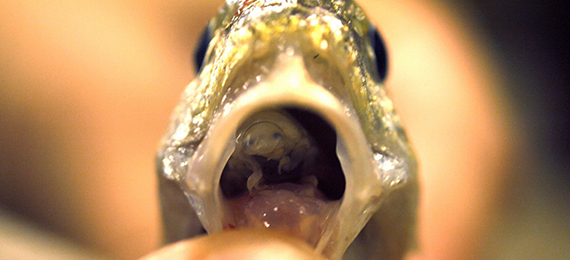
A fish was discovered with a parasite that ate the fish’s tongue. Then the parasite attached itself to the fish’s mouth to become its tongue. This weird, strange parasite was found inside the mouth of an Atlantic Croaker. This unusual news was reported from Galveston Island State Park in the United States of Texas. Directors from the Texas Parks and Wildlife Department captured a picture of the fish and posted it on Facebook. The official made fun of the creature as a Martian. Read on to learn more about tongue-eating parasites here.
Tongue Eating Parasite Spotted in Texas
The Facebook post had a caption, “Martian spotted at Galveston Island State Park. Ok, so not really… but this is still pretty spooky! Inside this Atlantic Croaker’s mouth is a parasitic isopod called a tongue-eating louse. This parasite detaches the fish’s tongue, attaches itself to its mouth, and becomes its tongue. The parasite then feeds on the fish’s mucus.”
What Is a Fish Tongue Called?
- A. Basihyal
- B. Tongue
- C. blowhole
- D. None of the Above
The Facebook post was about the parasite that replaced a fish’s tongue and took the fish’s tongue’s place. This parasite doesn’t harm a fish or affect humans. One person wrote that this made him stop eating fish.
Another user stated that it was a nightmare yet fascinating. This incident made him realize that he is slightly uncomfortable but feels grateful to learn this. This post has been around 3000 times on Facebook since it was uploaded.
Facts About Tongue Eating Louse
- The tongue-eating louse(Cymothoa exigua) is known as a parasitic crustacean belonging to the Cymothoidae family. This parasite trespasses inside the fish through the fish’s gills and attaches itself to the fish’s tongue.
- The louse attaches itself to the tongue’s base. It removes the blood supply to the organ.
- Then the louse turns into a tongue. It physically changed an organ in its host.
- The tongue-eating louse does not hurt or cause other impairment to the host. When the tongue has been removed, the parasite starts feeding upon the host fish’s blood and mucus. To date, lice have been discovered in eight fish species. This creature doesn’t harm humans until it is directly handled.